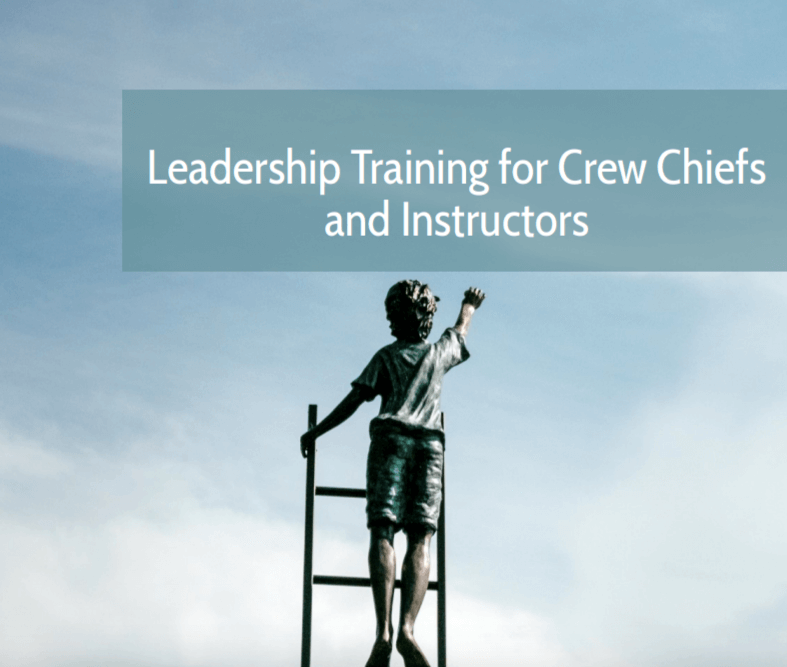
 Most students don?t have a lot of leadership experience, and yet a good, strong student-centered theatre program relies on a continuous round-robin of student leaders. Here are some guidelines and suggestions for how you can train your students to be thoughtful and effective student leaders.
Most students don?t have a lot of leadership experience, and yet a good, strong student-centered theatre program relies on a continuous round-robin of student leaders. Here are some guidelines and suggestions for how you can train your students to be thoughtful and effective student leaders.
Meet early and often with those you put in charge ? Start early and check in regularly and routinely to assess how things are progressing. The early sessions can even precede the work to be done.
Ten Responsibilities of the Person in Charge
The following list are items that don?t fall to the people doing the work, but to the person who is supervising them, their leader.
These belong to you, Crew Chiefs:
- Set the Agenda - break down the work into tasks; work within the calendar; coordinate with other crews
- Set the Priorities ? what?s going to get done first? Next? How much of your budget gets spent on what?
- Set the Tone and standards (both safety and artistic) ? How social or focused? How prompt or not? How tidy?
- Determine the division of labor ? Who will do how much? At which task? Who will worry about planning, expenses, provisioning, transportation, tools & equipment, supplies, quality control, etc.?
- Set the Pace ? How intense or relaxed will the work sessions be?
- Supervise the work of the crew ? Are they on task? Following the plan? Working safely? Getting along? Cleaning up after themselves?
- Handle problems and resolve conflicts ? Are they on task? Following the plan? Working safely? Getting along? Cleaning up after themselves?
- Dictate any mid-course corrections ? Things will go wrong. At what point do you reassess and shift gears, or priorities or procedures or personnel?
- Assure timely completion ? The show must go on?and most things must be completed in time for others to get used to them. Hit those deadlines!
- Evaluate the success of the task/crew ? How did it go? What really worked well? What should be done differently next time? Record these for future use.
??????The Iron Triangle
Anyone in charge of a creative project needs to be aware of the trade-off required by three critical factors: Quality, Time, and Money. You can only get two of these three, so what combination is it going to be? GOOD vs. FAST vs. CHEAP
Student leaders may not:
- Hire or fire anyone without approval from higher up (faculty or appropriate adult)
- Spend money on the show without prior approval from the appropriate person
- Modify the design/specifications without approval of the designer and/or director
- Permit sabotage of others? work ? including bad-mouthing, incl on social media
Asking for Help This doesn't come easily to people who want to appear confident and competent (or fear getting yelled at or criticized). But it is a critical skill of a good leader to know how to handle the unknown. Here are some places to look for answers:
Catalogues (online and in print) from vendors of theatre supplies and equipment ?The Backstage Handbook? by Paul Carter and George Chiang ?Backstage Forms? by Paul Carter ?Stage Production Handbook? by Kathryn Michelle Busti The show?s dramaturge The show?s production manager The director (!) or assistant/student director Booster parents Vendors Theatre forums and Facebook groups The crew one is working with ? yes, worker bees can solve problems, too Parents (your own and your crews?) Other theatre teachers Other school staff and kids Textbooks and theatre magazines ?Blackboard? and similar information databases your school may use
Lies to Avoid
If it?s important to you, it will be important to others.
Nothing will go wrong.
If you cancel a work session, everyone (including the chaperone) will know.
If you schedule it, they will come.
The equipment will work now because it did the last time you used it.
Things will be where they were before.
Exercise in Leadership
Name: Job:
This exercise is about priorities. Observe the priorities listed below. In the first empty column, rank them in the order that you exhibit them in your own life. In the second empty column, rank them in the order in which you would hope to see them in an ideal leader.
Personality Trait You Leader
Being encouraging
Being punctual
Being organized
Being patient
Being safety-conscious
Being popular
Being talented
Being capable
Being clear
Being experienced
Being industrious
Being a ?big picture? person
Being thrifty
Being detail-oriented
Having high standards
Relaxed, fun to work with
Being
Being